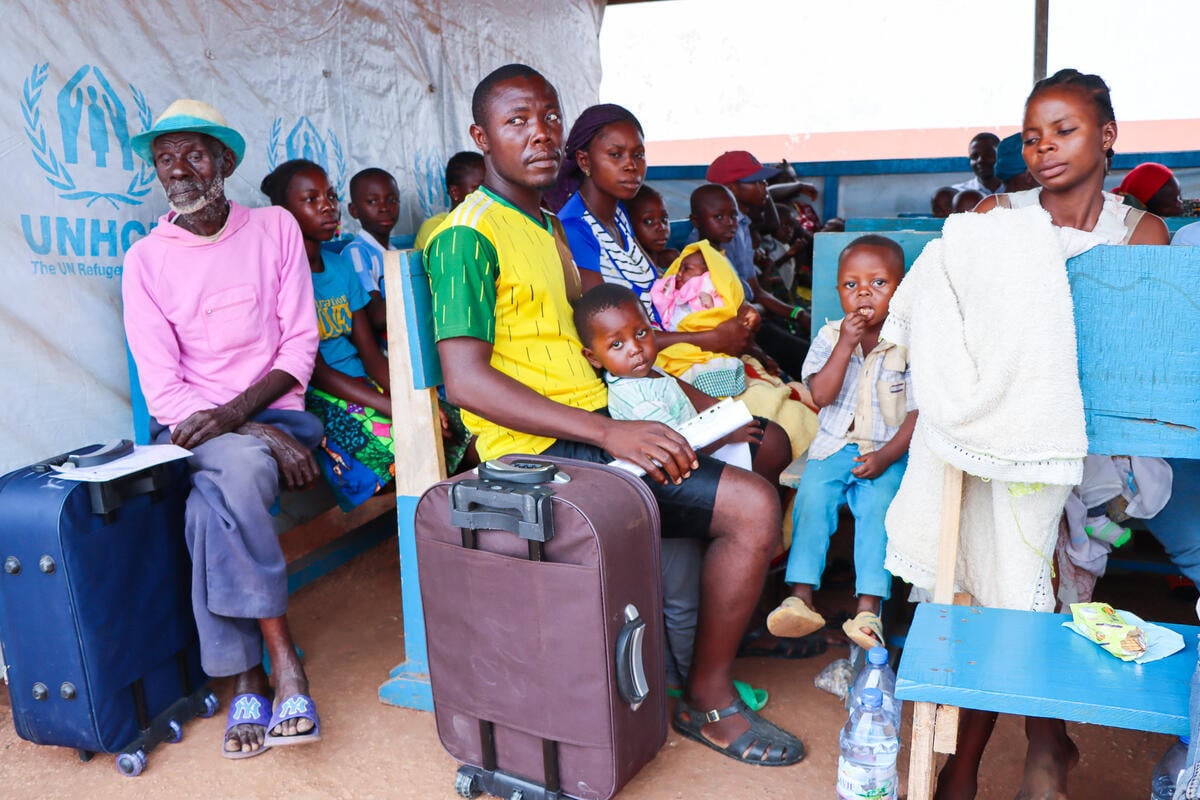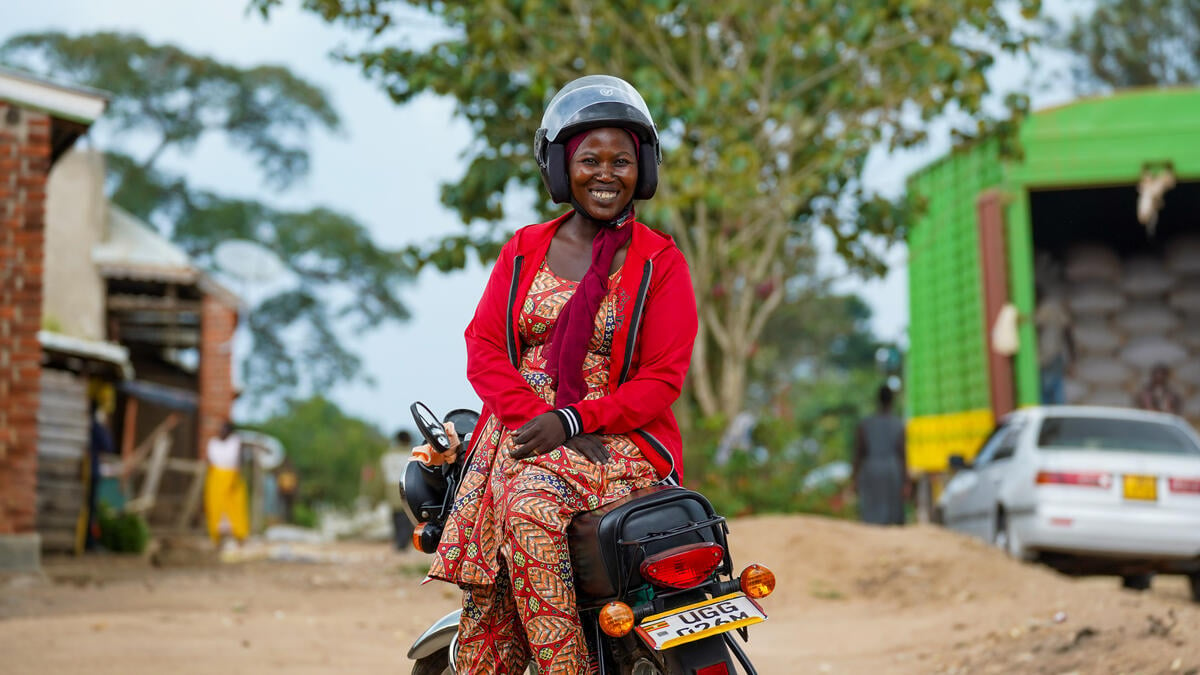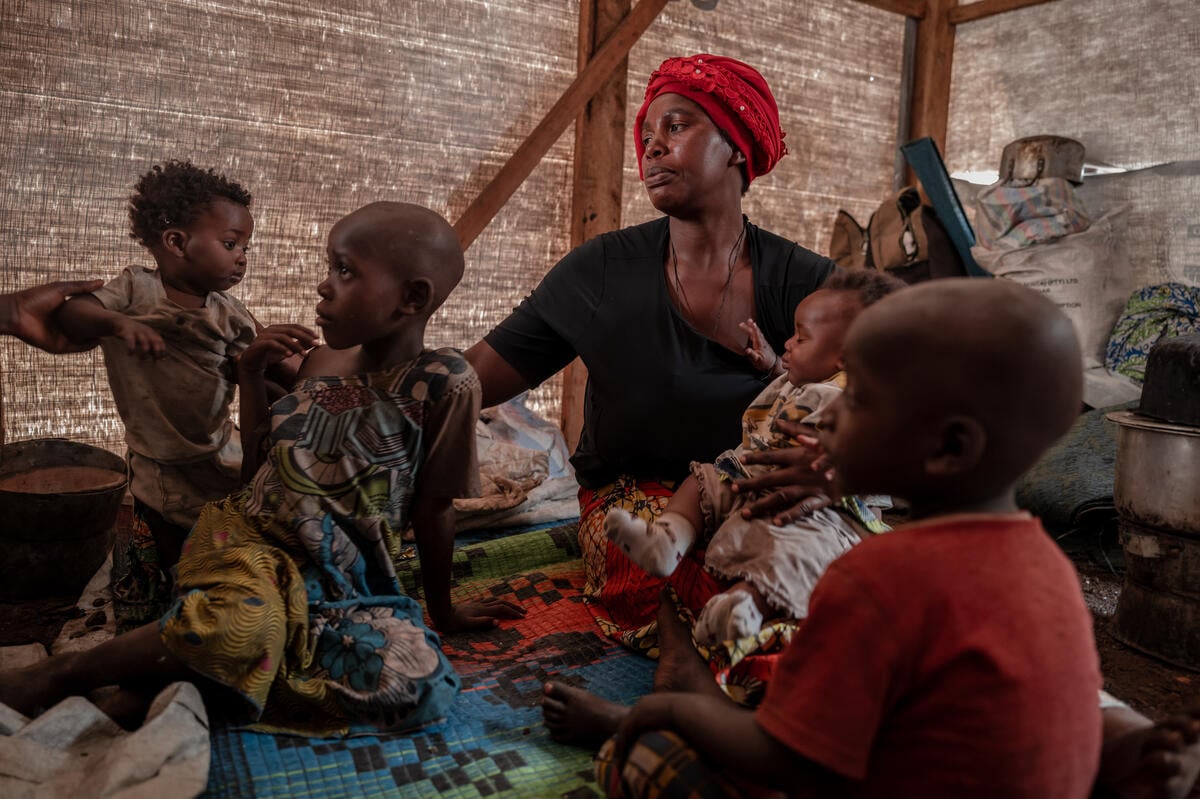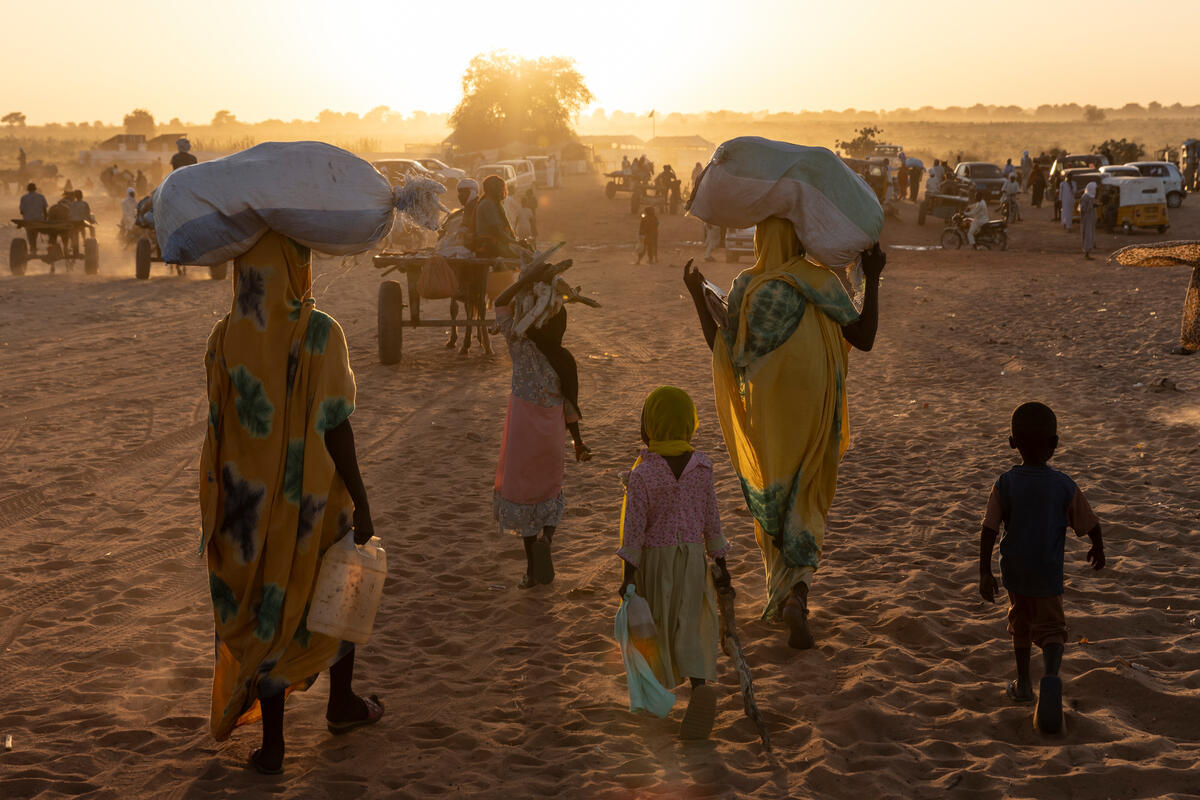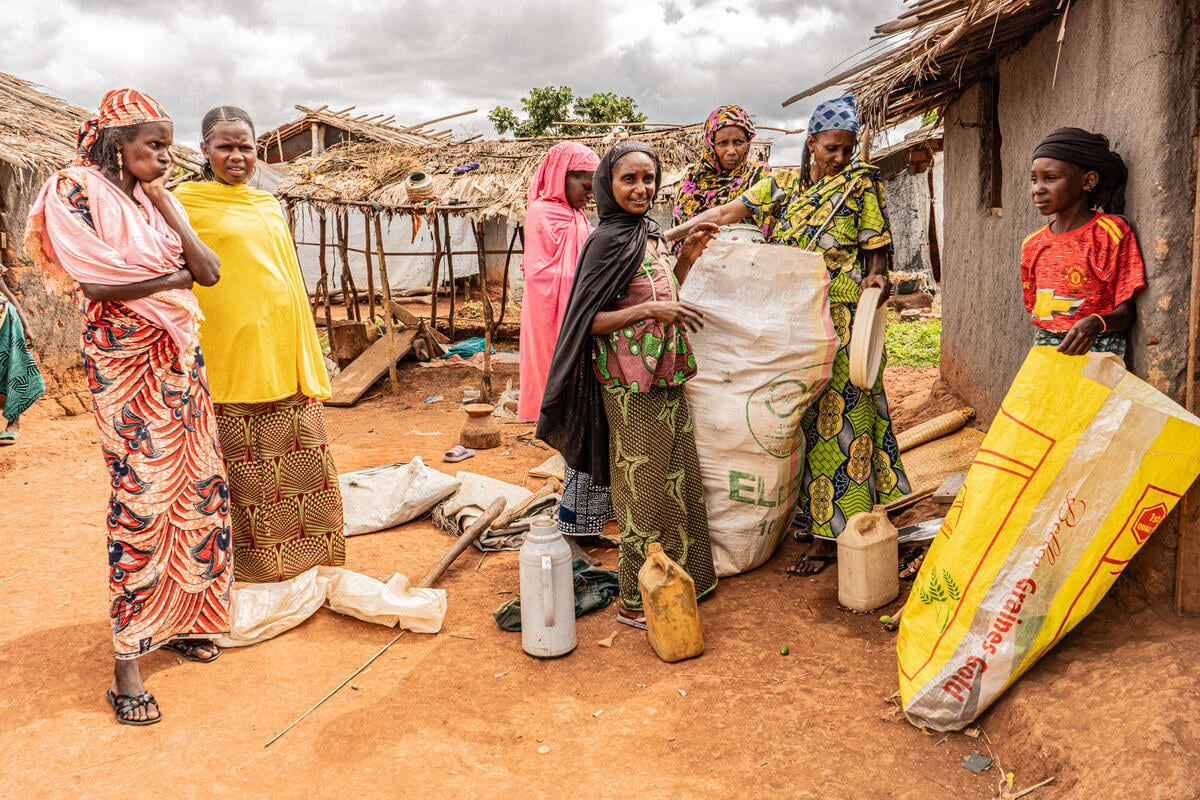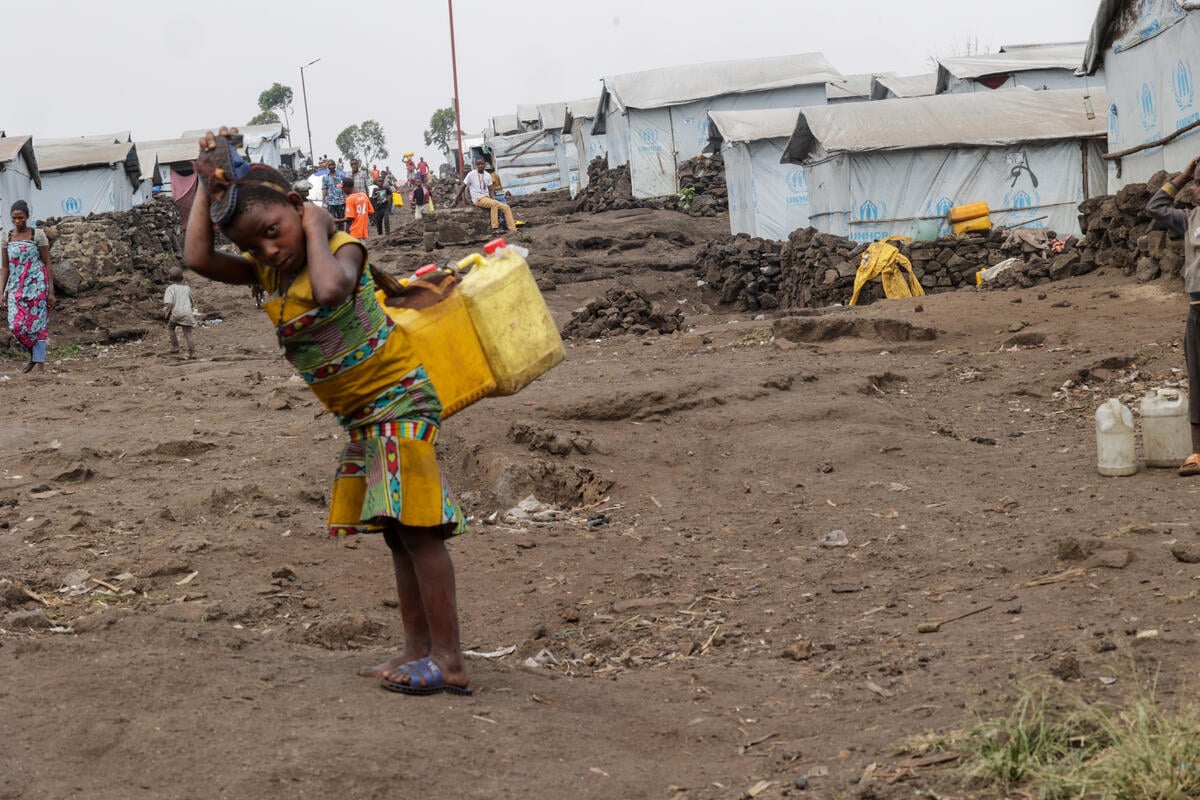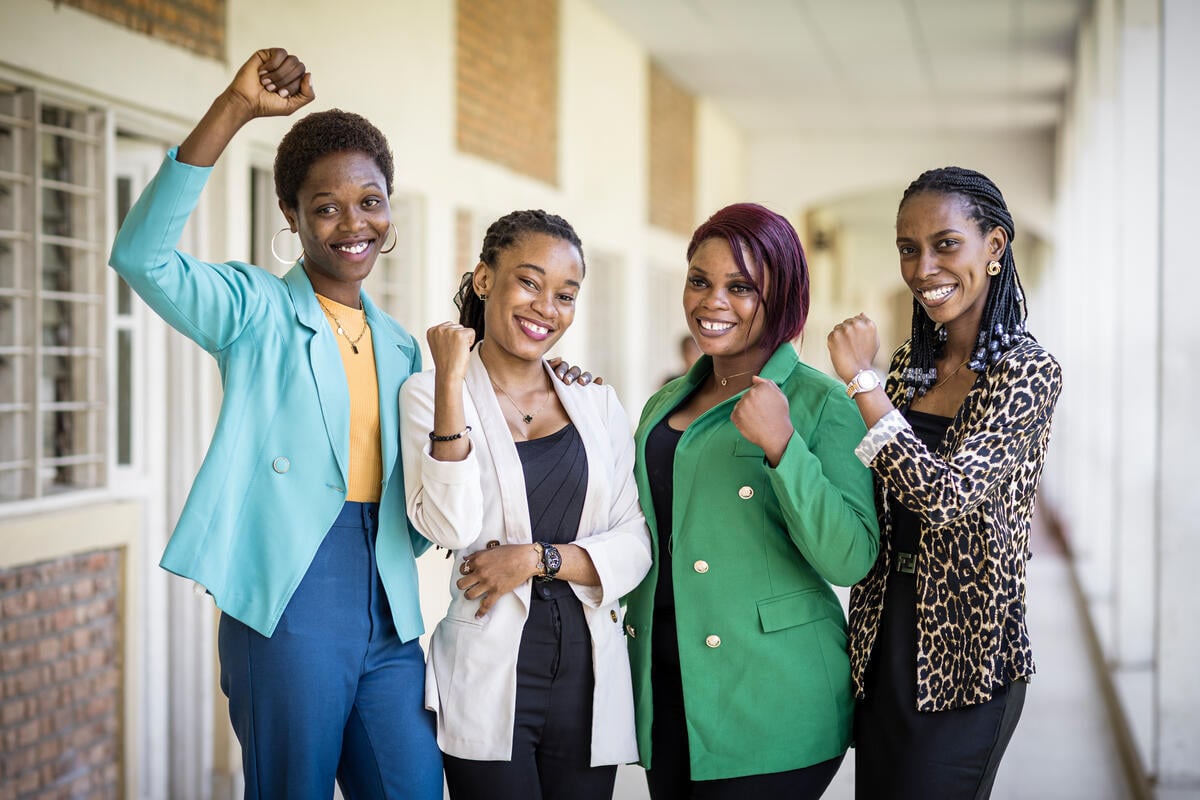Once Congolese refugees in CAR, now they shelter former hosts fleeing CAR
Once Congolese refugees in CAR, now they shelter former hosts fleeing CAR

BATANGA, Democratic Republic of the Congo, September 10 (UNHCR) - With conflict now appearing on the opposite side of the Oubangui River separating the Democratic Republic of Congo (DRC) and the Central African Republic, former refugees here and their ex-hosts have been forced to reverse roles.
"Our Congo is also a country that has many problems," Valentin, a 45-year-old father of eight, said outside his house in Batanga village in northern DRC's Equateur province. He was a refugee in the Central African Republic (CAR) in the 1990s, again from 2001 to 2004 during a new round of civil war, and from 2009 to 2011 during inter-ethnic clashes over fishponds.
Today, it's his turn to host refugees. Some 40,000 CAR residents have fled to the DRC since late March, when the rebel Seleka movement captured Bangui and ousted the Central African Republic government. Two refugee families of 12 people have found shelter in Valentin's small house beside the Oubangui; 22 people now sleep under his roof.
"We have also been forced [in the past] to flee and, on the other side of the river, we have been welcomed. We are obliged to do the same. Everything I do is what they have done for us too," Valentin said. In 2009, he stayed with families in Zinga on the opposite side of the river for weeks before he was transferred to a refugee camp.
"When I heard that these two families were living in Batanga transit centre, I ran to look for them and took them to my house," Valentin said. "They are the same families who hosted me on the other side [of the river]. We know each other well. They were welcoming when I was with them. When they arrived here, I felt obliged to do the same."
Most of the local population of Batanga were refugees in CAR in 2009 and are now hosting refugees from there. "Their kindness comes from the fact that the Congolese themselves have been welcomed by the Central African population and were allowed to cultivate their land [in 2009]. The population from here could not do otherwise," said Mokatu Sabale, head of Batanga village. He is hosting three families of 15 women and children.
Many of the refugees living with host families in Batanga are awaiting transfer to Boyabo refugee camp since they do not feel safe with Seleka rebels visible on the other side of the Oubangui River.
"I saw dead people, I saw people wounded, I saw all of that and I was scared," said Amodola Kelela, a 42-year-old father of five who is hosted by Valentin. "The war is terrible. I fled with three of my kids and walked two hours from Mbongo to Zinga. I carried much luggage. I suffered a lot."
UNHCR is continuing to extend Boyabo refugee camp to be able to transfer more refugees; some 2,710 refugees are currently in the camp and more than 2,500 more are awaiting transfer there. In addition, more refugees are still crossing the Oubangui River to the DRC.
UNHCR and its partners are also building four refugee camps in DRC's Equateur and Oriental provinces to provide protection and assistance to the refugees and ease the burden on the local population.
Idopolai Tema, a 34-year-old father of five who was a refugee in CAR, is among those hosting refugees who had once helped him. Since May, he has sheltered five families of 21 people in his small house.
"My wife and my kids are sleeping in one room, my wife and myself on the bed and my kids on sleeping mats on the floor. The refugees are sleeping in the second room and the living room," he said. "When they crossed we could not leave them to suffer, as we have a house here," Tema added. "We are all brothers, we are all humans."
By Céline Schmitt in Batanga, Democratic Republic of the Congo

